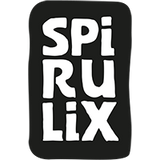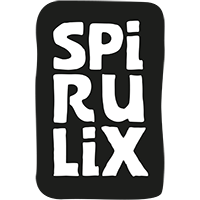Spirulina during pregnancy: This is how the superfood can help you
During pregnancy, it is particularly important to eat healthily so that the child can develop healthily. This is precisely why spirulina can be an essential building block in this phase of pregnancy, because it is considered a true superfood. But are spirulina algae really a "must" for expectant mothers and can they promote the development of the baby, or is the microalgae superfluous and easily replaceable?
Taking Spirulina During Pregnancy
In general, before consuming spirulina algae, you should find out about the origin and quality of the product. This applies not only during pregnancy, but in every situation in life. Because if the alga grows in uncontrolled conditions, such as water with an increased mercury content, the alga absorbs it and can cause great damage in the body by eating it. The risk of damage to the nervous system or the liver is greater in the unborn child in particular than in adults.
We at Spirulix grow spirulina here in Austria. We voluntarily comply with strict hygiene and quality standards. With a look at the origin of the microalgae, nothing stands in the way of daily intake during pregnancy and you can do something good for the body with the best of your knowledge and belief.
Benefits of Spirulina During Pregnancy
It is well known that the nutritional requirements of some vitamins and minerals increase during pregnancy. Spirulina algae in combination with vitamin C support iron absorption and also promote digestion, which is often a problem, especially in pregnant women. Spirulina mixed with a glass of orange juice is therefore the optimal vitamin cocktail for every pregnancy.
Spirulina, as a natural source of iron, can be used as a natural dietary supplement to counteract iron deficiencies during pregnancy, when iron deficiencies are common. Folic acid, commonly known as vitamin B9, contributes to the formation of maternal tissue and plays an essential role in building the embryo's nervous system. Spirulina also contains folic acid and supports growth processes and cell division. The need for folic acid is even slightly higher during breastfeeding than during pregnancy.
How to dose spirulina during pregnancy?
The consumption recommendation, whether during pregnancy or breastfeeding, does not differ from the daily dose of an average consumer. The recommended amount per day is 3-5 grams and should be consumed daily. Spirulina powder, on the other hand, is ideal as a component in liquids such as juices, smoothies or smoothie bowls. Due to the powder form, nutrients and vitamins can already be absorbed through the oral mucous membranes and can therefore be utilized by the body more quickly.
There is no need to worry about our Spirulina. We consider spirulina to be a vegetable with a particularly high nutrient density and bioavailability.
At what time of the day (morning, noon, evening) the spirulina algae are taken does not play a major role. However, it is often recommended to take the microalgae before or after breakfast in order to provide the body with the necessary building blocks for daily processes in the morning.
Spirulix - Spirulina algae from Austria
The quality of spirulina algae in particular should be taken into account when buying, origin and hygiene standards are decisive for a carefree intake. We at Spirulix are committed to this high quality standard and grow the small miracle algae on our own algae farm in the middle of Lower Austria. The harvest is done by hand in the family business and of course the highest quality and hygiene standards are observed.
The product range extends from nutritional supplements in powder form (the recommended consumption is one teaspoon per day), to unique snack products such as spirulina crackers and chocolate , to various mueslis . There's something for everyone, whether you're a mum-to-be or a dad-to-be.












